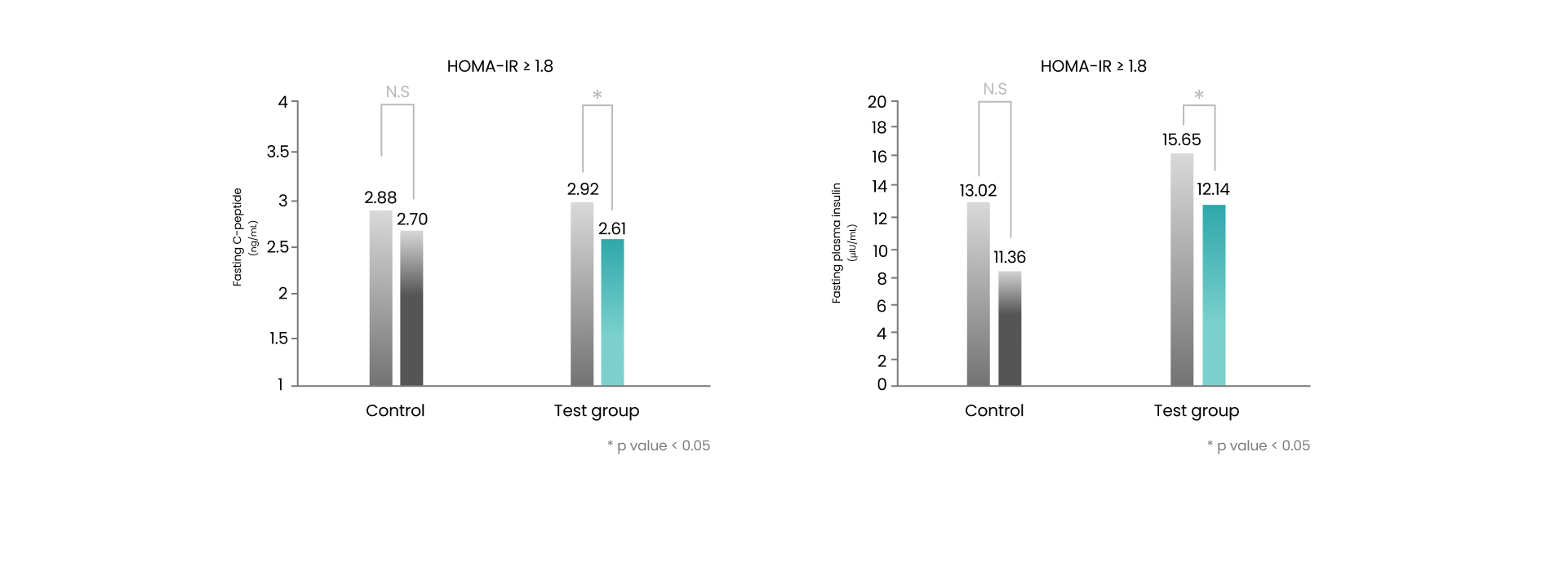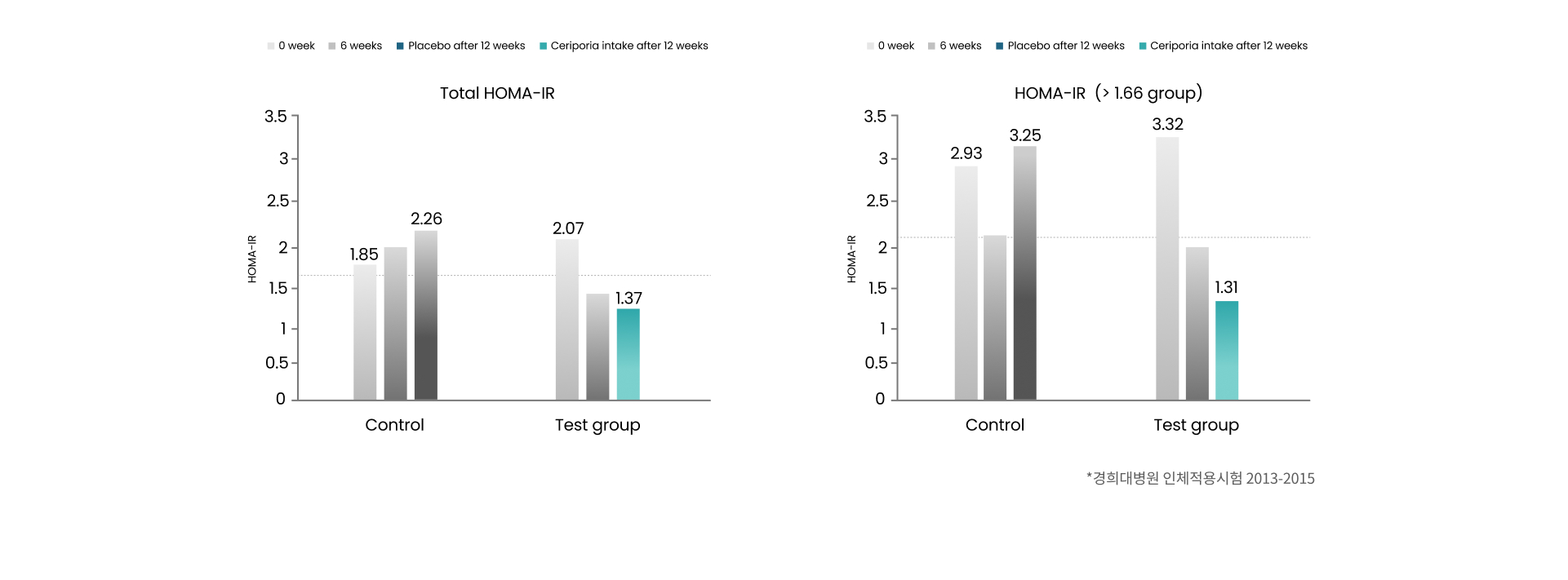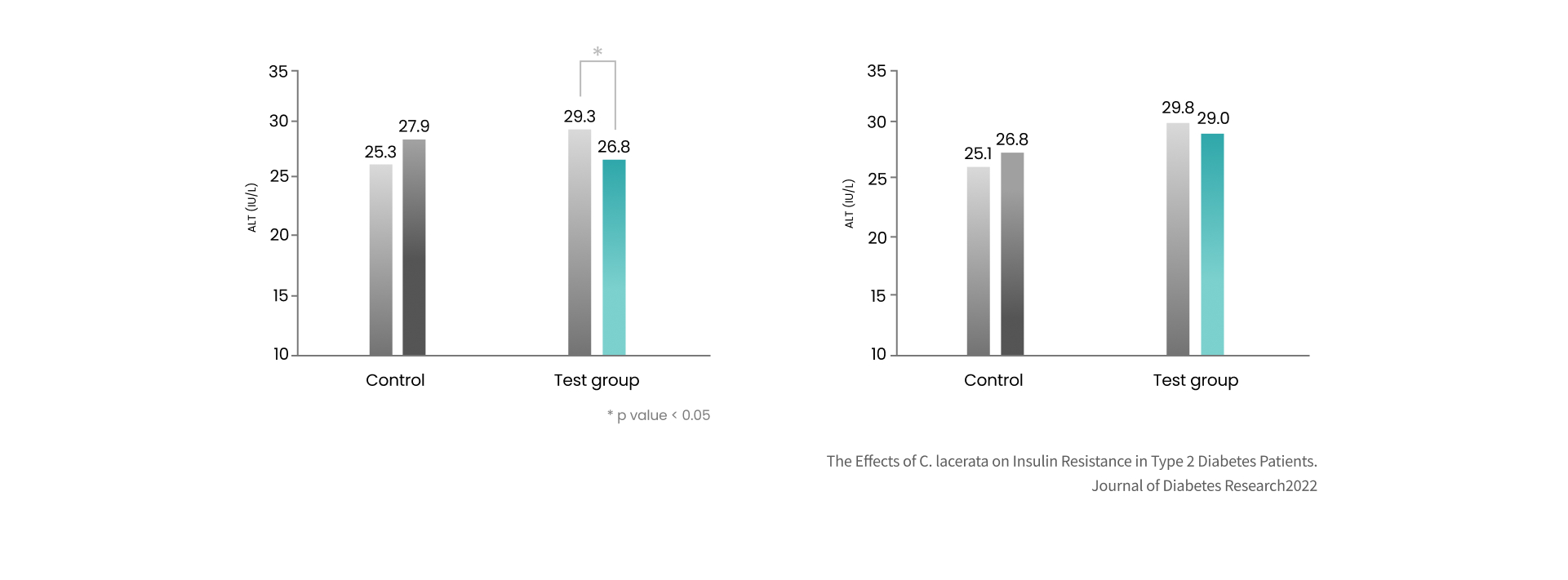Research Findings
Fugenbio began full-scale research following a pivotal discovery.
After 10 years of dedicated study, we confirmed that Ceriporia lacerata can help improve
insulin resistance and reduce elevated blood glucose levels.
Improvement in Insulin Resistance
(Pre-diabetes)
In a 12-week study of 72 pre-diabetic participants, daily intake of Ceriporia led to:
Serum insulin reduced by approx. 35.7%
*C-peptide reduced by approx. 52.5%
*C-peptide is released in equal amounts to insulin during proinsulin breakdown.
It remains stable in the bloodstream, making it useful for measuring insulin production and resistance.

Improvement in Insulin Resistance
(Diabetic Patients)
In a subgroup of patients with insulin resistance (HOMA-IR ≥ 1.8),
12 weeks of Ceriporia intake led to significant improvements in both C-peptide and fasting insulin levels.
*Fasting plasma insulin refers to insulin measured after at least 8 hours of fasting.In insulin resistance,
the body does not respond properly to insulin, leading to persistently high blood sugar levels as glucose is not absorbed into the cells efficiently.

Improvement in *HOMA-IR
(Insulin Resistance Index)
In a 12-week study of 72 pre-diabetic individuals,
daily intake of Ceriporia resulted in a 34% decrease in total HOMA-IR levels.
Among participants with higher insulin resistance (HOMA-IR ≥ 1.66), the decrease reached approximately 61%.
*HOMA-IR (Homeostasis Model Assessment of Insulin Resistance) is a marker calculated using fasting insulin and glucose levels.
Higher values indicate greater insulin resistance.

Liver Enzyme Improvement
In diabetic patients taking medication, 12 weeks of Ceriporia intake led to a significant improvement in *ALT levels.
*ALT (Aspartate Aminotransferase) is a liver enzyme released into the bloodstream when liver cells are damaged.
It is commonly elevated in cases of fatty liver, diabetes, or metabolic disorders.
